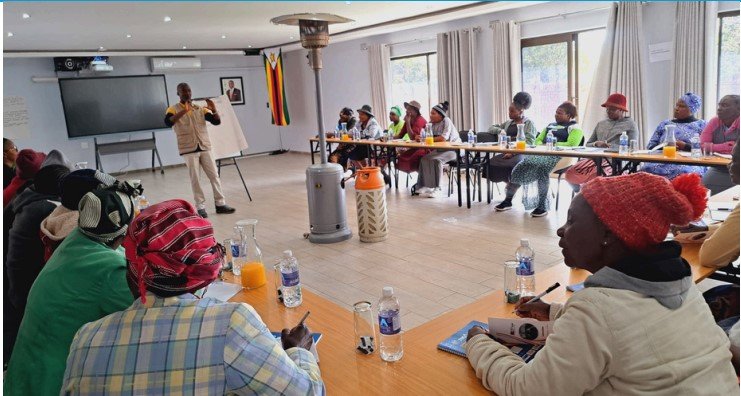Judith Phiri, Zimpapers Writer EMTHONJENI Women’s Forum has partnered with We Effect to train thirty five women farmers in Insiza District on value addition techniques and how to turn raw produce into high-demand products.In the heart of Matabeleland South Province, the women farmers in Insiza Wards 7, 8, and 10 have been aided to rewrite their stories to generate income from the produce they harvest.Under The Gender Gap: Promoting Women’s Access to Land Rights Project, the women are being assisted to build businesses, securing their futures and transforming their communities.In an update, Emthonjeni Women’s Forum said women farmers were being assisted to value add their produce “Historically women have struggled to own or control land, relying instead on family or community allocations that often leave them with access to land and no control or ownership thereof Without secure land rights, accessing loans, investing in long-term farming improvements, or even deciding what crops to grow becomes a challenge “Last month, 35 women were trained in value addition techniques, turning raw produce into high-demand products
Instead of selling raw tomatoes at low prices, they learned to process and package tomato sauce, make food spices to increase profits,” said the women’s rights lobby organisation.It said with inconsistent rainfall patterns, women were taught to preserve tomatoes, vegetables and fruits for off-season sales, while also acquiring knowledge on branding and marketing techniques to help them effectively promote their products and services.Emthonjeni Women’s Forum said the training focused on building strong brand identities, understanding target markets and using practical, low-cost strategies to attract and retain customers “The success in Insiza proves that sustainable change happens when projects align with local culture, needs and leadership Their message is clear: Give a woman land, equip her with knowledge, and she will feed a nation.”It said bridging the gender gap in agriculture was crucial for enhancing food security, boosting economic growth and promoting sustainable development.While, value addition techniques have been viewed as critical to addressing post-harvest losses, a significant challenge particularly for smallholder farmers in Zimbabwe, with estimates ranging from 20 to 40 percent of the harvested crop.Share on FacebookPost on XFollow usSave
Originally published on Zimbabwe Herald
All Zim News
All Zim News is a central hub for all things Zimbabwean, curating news from across the country so no story is missed Alongside aggregation, our team of nationwide reporters provides real-time, on-the-ground coverage
Stay informed and connected — reach us at admin@allzimnews.com.
Source: Herald
